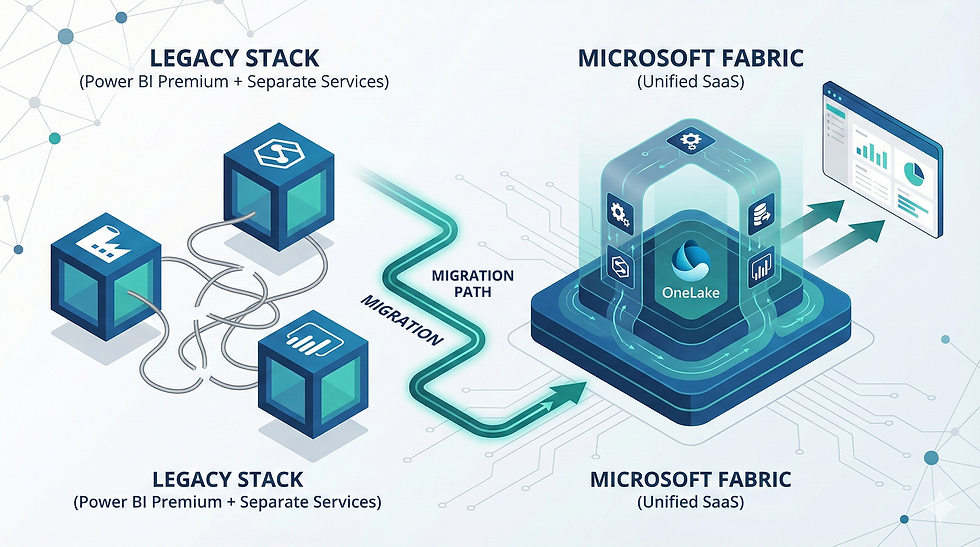Expert Data Management: Transform Your Business Performance
- Matt Lazarus

- Jun 19, 2025
- 6 min read
Updated: Sep 16, 2025
Business owners wake up every morning to find their systems have collected thousands of new data points overnight. Customer interactions, sales transactions, website visits, inventory movements, and operational metrics flow continuously into company databases. Yet despite this wealth of information, many business leaders still struggle to answer fundamental questions: Which products will customers want next month? Where are we losing money? What's causing customer complaints to spike?
The problem isn't a lack of data—it's the absence of professional data management expertise to transform raw information into actionable business intelligence. Companies that master this transformation see remarkable improvements in performance, while those that don't often find themselves making decisions based on outdated spreadsheets and gut feelings.
Understanding Professional Data Management Services
Professional data management represents a comprehensive approach to handling business information throughout its entire lifecycle. Unlike basic data storage or simple reporting, expert data management involves strategic planning, advanced processing techniques, and sophisticated analysis methods that align with specific business objectives.
A data management expert brings specialized knowledge about data architecture, quality control, security protocols, and analytical frameworks. These professionals understand how different data types interact, which storage solutions work best for various business models, and how to create systems that scale efficiently as companies grow.
The core objectives of professional data management extend beyond simple organization. Expert services focus on ensuring data accuracy, establishing reliable access protocols, maintaining security standards, and creating frameworks that support informed decision-making across all business functions.
Comprehensive Scope of Expert Data Management Services
Professional data management services encompass multiple specialized areas that work together to create robust information systems:
Core Service Areas:
Data quality assurance and cleansing processes remove errors, duplicates, and inconsistencies that can lead to faulty business decisions
Strategic data architecture design and implementation create efficient structures that support current needs while allowing for future expansion
Integration of disparate data sources connects information from various systems into unified, accessible formats
Advanced analytics and business intelligence capabilities transform raw data into meaningful insights and predictive models
Data security and compliance management protect sensitive information while meeting regulatory requirements
Each component plays a vital role in creating data management systems that deliver measurable business value rather than simply storing information efficiently.

Industries That Benefit Most from Professional Data Management
Different business sectors experience varying degrees of benefit from expert data management services, though virtually all modern companies can improve performance through better data handling.
High-Impact Industries
Industries That Gain Maximum Value:
Retail and e-commerce companies generate enormous amounts of customer behavior data, inventory information, and transaction records. Professional data management helps these businesses optimize pricing strategies, predict demand patterns, and personalize customer experiences.
Financial services firms handle sensitive customer information while managing complex regulatory requirements. Expert data management ensures compliance while enabling sophisticated risk analysis and customer segmentation.
Healthcare organizations must balance patient privacy with operational efficiency. Professional data management services help healthcare providers improve patient outcomes while maintaining strict security protocols.
Manufacturing businesses collect data from production lines, supply chains, and quality control processes. Expert data management enables predictive maintenance, waste reduction, and operational optimization.
Technology startups often generate data faster than they can process it effectively. Professional data management provides the foundation for scaling operations and making data-driven product decisions.
Key Benefits of Professional Data Management for Business Performance
The advantages of expert data management extend far beyond improved organization. Professional services create measurable improvements in multiple areas of business performance.
Primary Business Performance Benefits:
Decision-Making Enhancement: Professional data management eliminates decision-making guesswork by providing reliable, real-time insights. Business leaders gain access to accurate information when they need it, enabling faster responses to market changes and customer needs.
Operational Efficiency Improvements: Expert services reduce operational costs by identifying inefficiencies and waste through comprehensive data analysis. A skilled data manager can spot patterns that reveal unnecessary expenses, redundant processes, or underutilized resources.
Growth Acceleration: Professional data management accelerates business growth by uncovering new revenue opportunities and market trends. Expert analysis reveals customer segments that businesses might not have recognized, identifies products with growth potential, and highlights market timing opportunities.
Customer Experience Enhancement: Expert services improve customer satisfaction through a better understanding of client needs and behaviors. Professional data management creates detailed customer profiles that enable personalized service delivery and proactive problem resolution.

Essential Components of Comprehensive Data Management Services
Effective data management requires multiple coordinated components working together to create reliable, accessible, and secure information systems.
Foundation Elements
Essential Components for Success:
Complete data audit and assessment forms the starting point for any professional data management initiative. This process identifies existing data sources, evaluates current storage methods, and determines gaps in information collection or processing capabilities.
Custom data strategy development aligns data management activities with specific business goals. Rather than implementing generic solutions, expert data managers create tailored approaches that support unique business requirements and growth objectives.
Robust data governance frameworks establish clear policies and procedures for data handling. These frameworks define who can access what information, how data should be collected and stored, and what quality standards must be maintained.
Advanced Capabilities
Analytics and reporting dashboard creation transform raw data into visual, interactive tools that business leaders can use daily. Professional dashboards provide real-time insights while remaining easy to understand and navigate.
Ongoing monitoring and performance optimization ensure data management systems continue operating efficiently as business needs change. Regular system monitoring identifies potential issues before they impact business operations.
Staff training and change management support help internal teams adapt to new data management tools and processes. Professional training ensures that businesses can maximize the value of their data management investments.
Regular strategy reviews and updates keep data management approaches aligned with changing business needs. As companies grow and market conditions shift, data management strategies must adapt accordingly.
Security and Maintenance
Critical Protection and Support Elements:
Data backup and recovery systems protect against information loss due to technical failures or security breaches. Professional data management includes comprehensive backup strategies that ensure business continuity.
Access control and security protocols protect sensitive information while enabling authorized users to access needed data efficiently. Expert data managers implement security measures that balance protection with usability.
Integration capabilities ensure that data management systems can work with existing business software and adapt to new tools as technology advances.

Why Professional Expertise Matters
Internal data management efforts often fall short because they lack the specialized knowledge and experience that professional data managers bring to complex business challenges. While basic data storage and simple reporting can be handled internally, comprehensive data management requires expertise in multiple technical and strategic areas.
Professional data management services offer several key advantages over internal approaches. Expert data managers bring experience from multiple industries and business situations, allowing them to identify solutions that internal teams might not consider. They understand the latest data management technologies and can implement systems that provide immediate value while supporting long-term growth.
The complexity of modern data management extends beyond technical implementation. Professional data managers understand how to align data strategies with business objectives, ensure regulatory compliance, and create systems that support decision-making at all organizational levels.
Long-Term Value of Expert Data Management
The value proposition of professional data management services extends far beyond immediate operational improvements. Expert data management creates foundation systems that support sustainable business transformation over time.
Companies that invest in professional data management services often experience compounding benefits as their systems mature. Better data quality leads to more accurate insights, which enable better decisions, which drive improved performance, which generates more valuable data. This positive cycle creates sustainable competitive advantages that become more pronounced over time.
Professional data management also provides flexibility that internal solutions often lack. As businesses grow and change, expert-designed systems can adapt more easily to new requirements, market conditions, and technological advances.
The strategic advantage of professional data management becomes particularly important as markets become more competitive and customer expectations continue rising. Companies with superior data management capabilities can respond more quickly to opportunities, identify problems before they become serious, and deliver experiences that exceed customer expectations.
Investing in expert data management services represents a strategic decision that impacts every aspect of business performance. While the initial investment requires careful consideration, the long-term benefits of professional data management often far exceed the costs, creating value that compounds over time and supports sustainable business growth.



